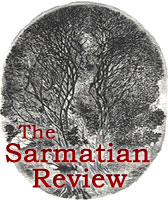| This Issue | Back Issues | Editorial Board | Contact Information |

Zupelnie normalna historia czyli dzieje Polski. Zanalizowane przez Marcina Kule w krótkich slowach, subiektywnie, ku pozytkowi miejscowych i cudzoziemców
Reviewer: Aleksandra Ziolkowska-Boehm
Zupelnie normalna historia czyli dzieje Polski. Zanalizowane przez Marcina Kule w krótkich slowach, subiektywnie, ku pozytkowi miejscowych i cudzoziemców
By Marcin Kula. Warsaw: Biblioteka Wiezi, 2000. 178 pages. In Polish.
This condensed history of Poland tries to show the impact of the key events of Polish history on contemporary Poland. The chapter titles speak for themselves: "The Place under the Sun, What Place under the Sun?" "Territory," "Neighbors," "Nation," "Immigrants," "State," "The Knowledge of the Past," "Religion," "Closer to Europe or to the Third World?" "The Communist Attempt to Modernize," "Is the Past Over?" Included also is a calendar of events in Poland and elsewhere, and suggestions for further reading. The author strives to maintain a post- 1989 point of view. His remarks on the two concepts of a nation: as a collection of citizens and as a union of Poles, are particularly interesting. Under the partitions, the notion of Poland as a union of Poles gained ground, and the view of Poland as a "country of citizens" was weakened. The author's explanation of this development is most useful, because impatient outside observers often do not take these historical circumstances into account.
The author's thoughts on the Polish Diaspora between the two World Wars are likewise interesting: "The Polish immigrants and Polish enclaves in the world were treated by Poland as a part of the Polish nation. At the same time, different nationalities and minorities living in Poland, with different cultural and religious backgrounds, were not considered part of the Polish nation." Again, the author explains the reasons for this view, so different from the standard American view on what constitutes nations and states.
In another chapter, "The same people yet not the same," Kula comments on Soviet-occupied Poland: "The majority of people were subjected to uravnilovka [leveling-out] by all kinds of mechanisms including more or less similar salaries, apartments and furniture. Poverty seemed to disappear, and a casual foreign observer could hardly distinguish between those who flourished under the communist regime and the vast majority who did not. In the later years, the system gave the sons and daughters of farmers and workers an opportunity for education." True enough: the percentage of farmers' sons and daughters at universities has dropped dramatically since the arrival of freedom.
The book strives for objectivity in looking at the past, and it gives the reader a feeling that stability has finally been achieved in Poland. Kula ends with melancholy remarks about the lack of interest in history among contemporary students. They tend to choose law and economics, he says. But in his view, the Polish youth tend to look toward the future rather than toward the past, and this is a healthy development.
Back to the September 2001 issue
The Sarmatian Review
sarmatia@rice.edu
Last updated 9/17/01